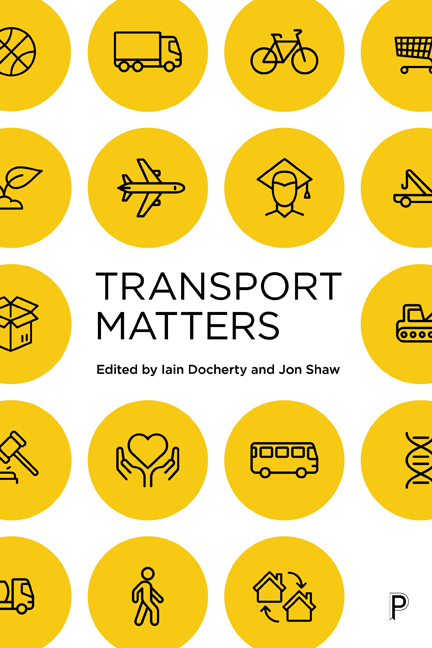3 - Energy, Pollution and Climate Change
Published online by Cambridge University Press: 03 March 2021
Summary
Introduction
There is little in common between ‘e’ when a physicist writes it and ‘energy’ when the word is used by an economist, politician, or windmill fan. ‘E’ is an algorithm, ‘energy’ is a loaded word. ‘E’ is meaningful only within a formula, ‘energy’ is charged with hidden implications: it refers to a subtle something that has the ability to make nature do work. Even the engineer who routinely handles megawatts talks of ‘energy’ when he [sic] speaks to his client. Energy now, as work formerly, has become something that individuals and societies need. It is a symbol that fits our age, the symbol of that which is both abundant and scarce. (Illich 2010: 13)
Mobility is a service that demands energy. Energy, in turn, is fraught with complexity in terms of its forms, availability, infrastructure, ownership, extraction, conversion and combustion, and the sociopolitical implications of all of these factors. It is also complex in that the fundamental laws of thermodynamics render it simultaneously extremely productive and profligately wasteful. This has led to a science and policy of energy conservation which is a testing mix of calls to use energy resources more sparingly while applying an engineering focus on maximising work and minimising waste.
Turnbull (2017: 26) traces the history of energy resource conservation using the example of steam engines, which he explains led to ‘industrialists and engineers becoming preoccupied with using fuels with utmost efficiency, and maximizing the work that could be derived from irreversibly consumed and geologically distributed resources such as coal.’ Turnbull is by no means the first author choosing to adopt transport cases to illustrate the consequences of the homage paid to energy. In Energy & Equity, Illich (1974) described how cars and aeroplanes force people to devote more and more time, money and effort to getting themselves from here to there each day. He claims there would be no ‘crisis’ in energy if society chose to adopt speed limits that favoured walking and cycling.
- Type
- Chapter
- Information
- Transport Matters , pp. 55 - 82Publisher: Bristol University PressPrint publication year: 2019



